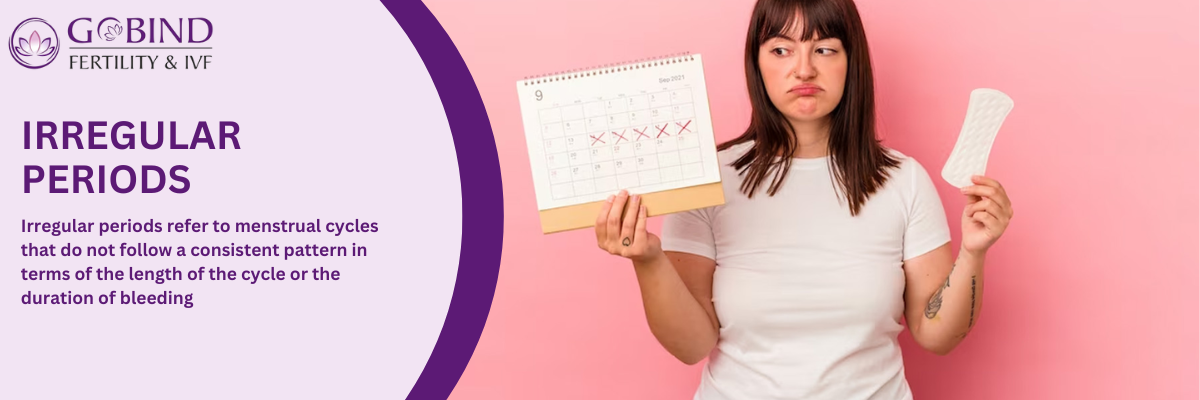

Irregular Periods
Known by another name, oligomenorrhea, irregular periods are menstrual cycles that do not follow the usual pattern of a monthly cycle that lasts from 21 to 35 days. There are several ways that irregular periods might appear, such as:
- Seldom occurs: Less than eight menstrual cycles annually.
- Frequent intervals: Cycles lasting more than 25 days.
- No menstrual bleeding for longer than three months: This is called delayed periods.
- irregular bleeding: The flow and length of bleeding can vary or it can happen at irregular intervals ,periods can come afterevery 10-15 days.
Causes of irregular periods can include:
- Hormonal imbalances: The normal hormonal balance that controls menstruation can be upset by diseases like PCOS, thyroid issues, and the use of hormonal contraceptives.
- Stress: The hormonal signals that regulate the menstrual cycle can be disrupted by high amounts of mental or physical stress.
- Dramatic weight fluctuations: Hormone levels might be affected and irregular periods can result from being underweight or overweight.
- Specific Medications: Menstrual regularity may be impacted by some medications, including some antidepressants, chemotherapy drugs, and contraceptives.
- Perimenopause: Women may experience irregular cycles when their hormone levels fluctuate as they get closer to menopause.
- Additional medical conditions: Irregular bleeding patterns may be exacerbated by ailments such as pelvic inflammatory disease, uterine fibroids, and endometriosis.
Diagnosis may involve a detailed medical history, physical examination, hormone level testing, and imaging studies (such as ultrasound) to identify the underlying cause.
Treatment depends on the specific cause and may include:
- Lifestyle changes (managing stress, maintaining a healthy weight)
- Hormonal contraceptives (birth control pills, patches, or devices like Merina.
- Medication to address underlying conditions (e.g., metformin for PCOS)
- Surgery (in cases of structural abnormalities like fibroids or endometriosis)
Period irregularities are not always alarming, but persistent irregularities need to be checked out by a doctor to rule out underlying medical issues and treat any dangers to fertility or other health issues.

















